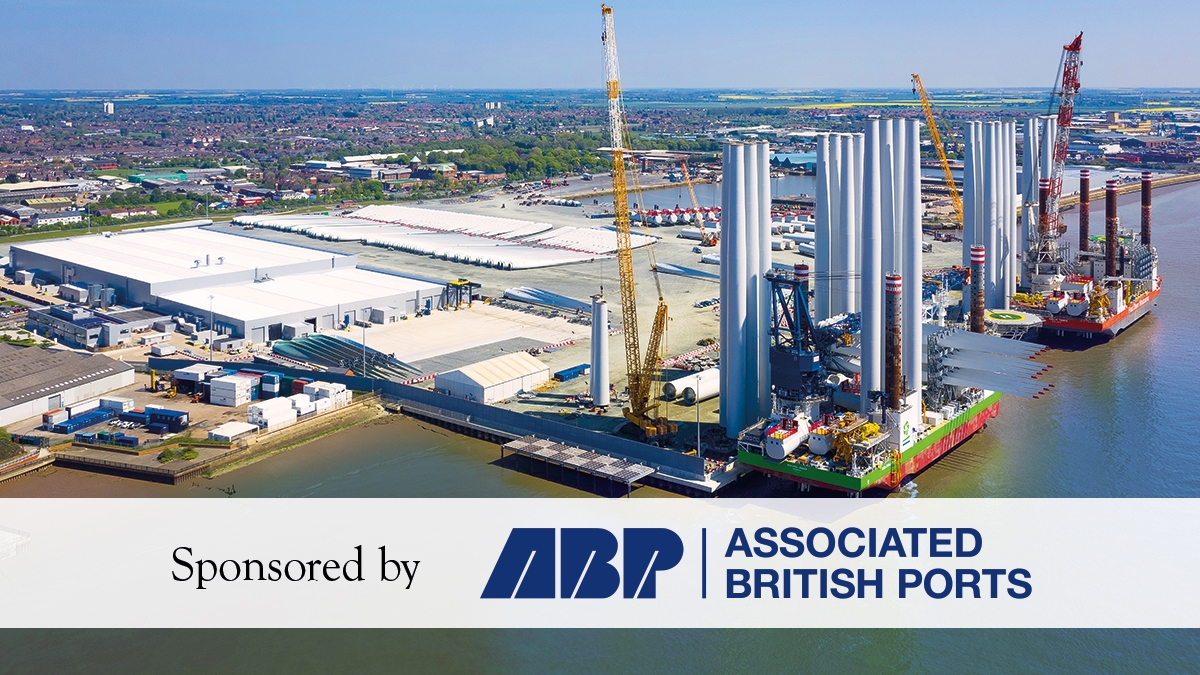The UK is embarking on a technological revolution that will transform the way that energy is generated, distributed and used. Whether it is dealing with the cost of living crisis, responding to concerns about energy security, or enabling energy transition, decisions made now will be critical to the UK’s economic prospects in the years ahead. As an island nation, with a proud maritime heritage, it is our ports that will provide the foundation for this coming change.
Associated British Ports (ABP) is the UK’s leading ports group, with 21 ports around Britain handling around a quarter of the nation’s seaborne trade. Our ports have provided essential infrastructure for British manufacturing and industry since the first industrial revolution and form the backbone of some of the country’s largest industrial clusters, in the Humber, South Wales, and the Solent. As we embark upon the next industrial revolution, our ports are once again driving transformational change, enabling the decarbonisation of energy, industry and transport.
The development of the offshore wind sector is a UK success story, and ABP has long been at the forefront of investment and delivery to support this. The offshore wind manufacturing facility at Green Port Hull has created skilled long-term jobs in the region and established a hub for future growth. Across the Humber Estuary in Grimsby, the port has evolved to become the world’s largest base for offshore wind operations and maintenance activity. ABP’s investment to develop the Lowestoft Eastern Energy Facility in East Anglia will create further capacity to accommodate the sector’s continued growth in the Southern North Sea.
Securing a clean, affordable, and reliable energy supply for households and businesses will remain a government priority in the months and years ahead. Accelerating the rollout of renewables will be essential to achieving this, with low-carbon nuclear power also playing an important role. By facilitating this process, ports are not only helping to bolster energy security and safeguarding existing jobs in industry and manufacturing; we are also taking important steps towards establishing the industries of the future.
Accelerating the development of the hydrogen economy is essential to achieving net zero. As multimodal hubs for transport and logistics, often adjacent to major industries and sources of renewable energy, ports are also uniquely located to serve as generation, storage and distribution sites for green hydrogen. Major projects already underway in the Humber ports illustrate the range of potential applications, from energy storage to alternative transport fuel. The Humber is also among the leading areas in developing carbon capture, utilisation and storage (CCUS) technology that will be critical for reducing industrial emissions.
The market for Floating Offshore Wind (FLOW) in the Celtic Sea region is still in the early stages of development but represents a huge opportunity for the economy of South Wales and UK plc. Port Talbot is uniquely placed to become a world-leading manufacturing and support hub for the sector, delivering transformational change for the regional economy and securing a major new industry for the UK as whole.
The FLOW opportunity shows how ports can serve as catalysts for reindustrialisation and economic regeneration in coastal communities around the country, and how – with the right policies and investment in port infrastructure – we can grow port-centric manufacturing linked to clean energy provision. The energy transition provides both a generational opportunity to deliver clean and secure energy, while levelling up the UK economy in the process.






Comments